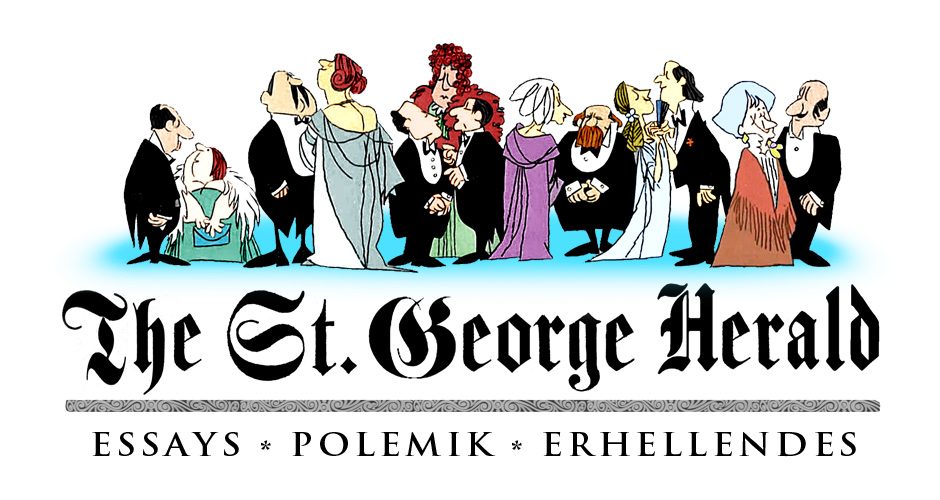betr.: 75. Todestag von Booth Tarkington
Fortsetzung vom 22. Juni 2015
Hier folgt nun die Originalfassung des Prologs von Orson Welles nach Booth Tarkington, ergänzt um eine Passage, die zu den zahlreichen Kürzungen zählt, welche am Film „The Magnificent Ambersons“ vorgenommen wurden.
The magnificence of the Ambersons began in 1873. Their splendor lasted throughout all the years that saw their Midland town spread and darken into a city.
In that town in those days all the women who wore silk or velvet knew all the other women who wore silk or velvet, and everybody knew everybody else’s family horse-and-carriage.
The only public conveyance was the streetcar. A lady could whistle to it from an upstairs window, and the car would halt at once, and wait for her, while she shut the window, put on her hat and coat, went downstairs, found an umbrella, told the girl what to have for dinner, and came forth from the house. Too slow for us nowadays, because the faster we’re carried the less time we have to spare.
During the earlier years of this period while bangs and bustles were having their way with women, there were seen men of all ages to whom a hat meant only that rigid, tall silk thing known to impudence as a “stove-pipe”.
But the long contagion of the “Derby” had arrived: one season the crown of his head would be a bucket, next it would be a spoon.
Every house still kept it’s bootjack, but high-topped boots gave way to shoes and “Congress gaiters”; and these were played through fashions that shaped them now with toes like box-ends and now with toes like the prows of racing shells. Trousers with a crease were considered plebeian; the crease proved that the garment had laid upon a shelf, and hence was “ready-made”.
With evening dress a gentleman wore a tan overcoat, so short that his black coattails hung visible five inches below the overcoat. But after a season or two he lengthened his overcoat till it touched his heels…and he passed out of his tight trousers into trousers like great bags.
The people were thrifty in that Midland town because they were sons or grandsons of the “early settlers”, who had opened the wilderness with wagons and axes and guns, but with no money at all. The pioneers were thrifty or they would have perished; they had to store away food for the winter, or goods to trade for food, and they had often feared they hadn’t stored enough. They left traces of that fear in their sons and grandsons. In the minds of most of these, indeed, their thrift was next to their religion. To save, even for the sake of saving, was their earliest lesson and discipline. No matter how prosperous they were, they could not spend money either upon “art” or upon mere luxury and entertainment without a sense of sin.
In those days they had time for everything, time for sleigh rides, and balls, and assemblies, and cotillions, and open house on new years, and all day picnics in the woods, and even that prettiest of all vanished customs, the serenade. Of a summer night, young men would bring an orchestra under a pretty girl’s window, and flute, harp, fiddle, ‘cello, cornet and bass viol would pleasantly release the melodies to the dulcet stars.
Against so homespun of that background, the magnificence of the Ambersons was as conspicuous as a brass band at a funeral.
